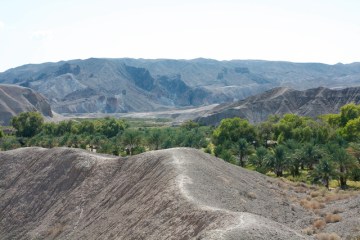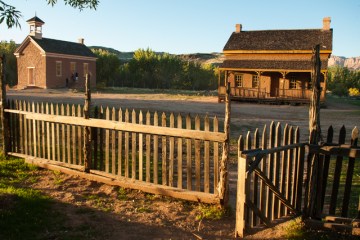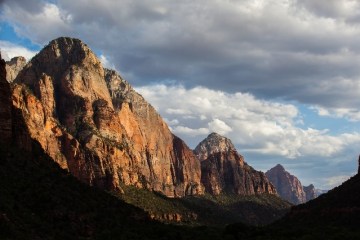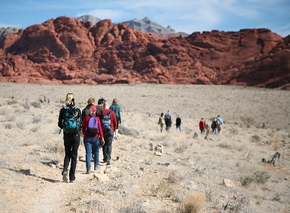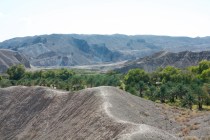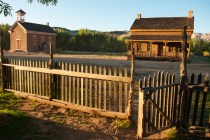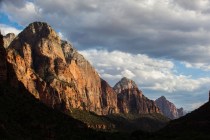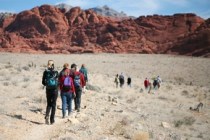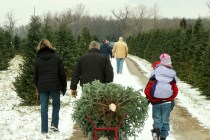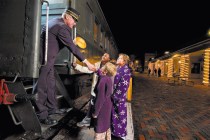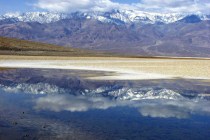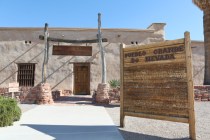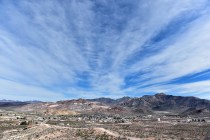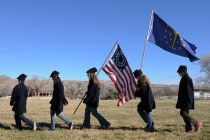Gold Butte now in the spotlight, worth checking out
The remote corner of Clark County known as Gold Butte remained unknown to most Nevadans until a recently proposed congressional act brought it unusual attention. The long-ignored region lying south of Mesquite, east of the Virgin River and the Overton arm of Lake Mead and west of the Arizona border, may gain recognition and protection under the Gold Butte National Conservation Area Act, HR 7132.
The proposal introduced by U.S. Rep. Shelley Berkley, D-Nev., last fall encompasses 362,177 acres in a huge conservation area, including more than 130,000 acres in several small wilderness areas. Hailed by conservationists and criticized by many residents of Mesquite and some outdoor enthusiasts, Gold Butte hasn't received this much attention since the little ghost town of the same name boomed more than a century ago. The issue awaits congressional attention.
Until the recent political moves, Gold Butte's biggest claim to fame was its designation as a backcountry byway of the Bureau of Land Management in 1989. As part of the national network of scenic byways proposed by the states and various federal agencies, Gold Butte became an area reached by more than a handful of nearby Nevadans with a yen for off-highway exploration. The region soon drew mention in travel literature and on Web sites for the Southwest and neighboring Southern Utah.
As it attracted more visitors, the area began to bear the marks of a few irresponsible users who chose to scar the desert with off-road vehicle tracks, to leave litter and human waste in primitive campsites, and to deface ancient cultural remains such a petroglyphs. Its no-fee, backcountry byway status did not come with any increased protection of the resource by the BLM. Many concerned groups felt the Gold Butte area deserved more.
Southern Nevadans interested in seeing the Gold Butte region for themselves should use the cooler months ahead of us, avoiding the extremes of summertime temperatures there. Follow Interstate 15 north toward Mesquite, turning at exit 112, the Riverside/Bunkerville exit, about 75 miles from Las Vegas.
If you turn left at the "Y" just the other side of the bridge over the Virgin River, you'll drive to Mesquite through Bunkerville, a pioneer community with a few reminders of yesteryear among its older buildings. A right turn starts you toward the ruins of the boomtown of Gold Butte, 56 miles distant. The remains of the old town mark the end of the byway, with only four-wheel routes beyond that point.
The first 20 miles are paved, albeit rough in spots, while the remainder of the byway is a good, graded or graveled surface. Visitors safely use passenger vehicles on the main route, but those exploring side roads need vehicles with high clearance and four-wheel drive. Keep on track by following the distinctive small, narrow, brown backcountry byway markers installed sparingly by the BLM, especially at critical road junctures.
Many visitors go only to the end of pavement at Whitney Pockets, a colorful sandstone area. The eroded sandstone formations provide places to picnic and camp just off the main road. Visitors enjoy exploring the little stone canyons on foot and climbing to the tops of the outcroppings for sweeping views. Many bring off-highway vehicles to explore miles of the old roads left by miners in days gone by. The area boasting more than 40 kinds of minerals, including gold and many gemstones, drew miners as long ago as the centuries of Spanish control of the Southwest and perhaps even earlier.
Watch for a sign marking a short spur to the unusual geological feature known as Devil's Throat. Keep the dogs in the car and hold children's hands as you approach the crumbling edges of a deep, dark sinkhole about 100 feet across. The protective fence erected by the BLM is often breached or even flattened.
The road continuing to Gold Butte ghost town traverses beautiful desert country. It runs through an extensive Joshua tree forest and twists through sparsely wooded foothills still bearing snow on north slopes and in shaded areas.
Margo Bartlett Pesek's column appears on Sundays.




